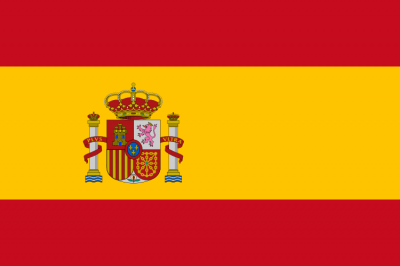Will Brexit See Gibraltar’s Return to Spain with EU Support?

The European Union plans to support Spain in its territorial claims on Gibraltar in the next round of Brexit negotiations that are expected to begin on March 3. The EU will give the Iberian country the power to exclude British overseas territory from any commercial agreement signed with Brussels. British control over Gibraltar was achieved by the 1713 Treaty of Utrecht. Ever since then, Spain has always sought the strategically placed peninsula, that is at the entrance of the Mediterranean Sea from the Atlantic Ocean, to return to its sovereignty.
According to The Guardian in 2017, King Felipe of Spain called on the British government to work towards a new agreement over the future of Gibraltar and demanded greater certainty over the future rights of Spanish citizens living in the UK after Brexit. However, with Brexit that just passed, The Guardian reported that British Prime Minister Boris Johnson will be presented with the choice of reaching agreement with the Spaniards about Gibraltar’s future or exposing its citizens to economic peril by pushing it outside any EU-UK trade deal.
According to a senior diplomat of the EU, quoted by the newspaper, the Spanish Government has requested that the new relationship be established between the United Kingdom and the EU does not apply to Gibraltar without the explicit consent of the Iberian country , which will only happen if Madrid and London reach an agreement in the bilateral talks about the peninsula.
The Gibraltar issue highlights the difficulties that London faces as it progresses in the negotiations on its future relationship with Brussels after Brexit. The United Kingdom became a “foreign country” for the EU after it formally withdrew from the organization. While still a member of the EU, the United Kingdom managed to resist Spanish claims about Gibraltar. Now, however, Madrid will have the full support of the other 26 countries in the bloc. According to a spokesman for the British Foreign Ministry, the United Kingdom will not exclude Gibraltar from the upcoming negotiations with the European organization.
“The UK will not exclude Gibraltar from our negotiations in relation to our future relationship with the EU. We will negotiate on behalf of the whole UK family, which includes Gibraltar.”
The small British controlled enclave of just 7 square km and 32,000 inhabitants, is one of two land borders that the EU has with United Kingdom territory, the other being between Ireland and British-controlled Northern Ireland. This has caused a lot of uncertainty about the effects that Brexit can have, especially among workers. This is especially crucial as Gibraltar is one of the wealthiest and most prosperous regions in not only the United Kingdom, but also the world, with an unemployment figure of only 1%. In comparison, the Spanish municipality of La Linea de la Concepción, next to Gibraltar has an unemployment rate that exceeds 30%.
With a non-existent agricultural or industrial sector, the Gibraltarian economy is based on customs duties, revenues from the naval base, online games, tourism and financial services. Until now, companies could register in Gibraltar and trade with the entire EU, benefiting from the lower tax rate that the British-controlled enclave enjoys. But some companies, especially in the online gaming sector, have already started leaving Gibraltar for Malta, from where they can continue to operate in the EU.
It is therefore unsurprising that the Gibraltarians voted overwhelmingly against Brexit. In fact, Gibraltar had the highest percentage of votes in the United Kingdom to remain in the EU in the 2016 referendum. 95.9% voted in favor, accounting for 19,322 people, with only 823 supporting Brexit.
When the United Kingdom joined the predecessor of the EU, the European Economic Community, in 1973, Gibraltar also did since its foreign policy is attached to London. However, its membership to the bloc was given a special status. Gibraltar was not part of the customs union of the EU unlike the United Kingdom, and could establish lower taxes on its imports and exports. But this was protected by the laws of the free movement of workers, services and capital.
During the transition period between February 1 and December 31 of this year, both parties will negotiate the terms of their future relationship, especially regarding a possible trade agreement and the rights of European citizens in the country, as well as British citizens in the European Union.
With these complications and now having the full support of the EU, there is no better time now for Spain to stake its claim over Gibraltar. Any success with Gibraltar will only push further Argentina’s sovereignty efforts over the the Islas Malvinas, more commonly known as the Falkland Islands, a South American archipelago invaded by the United Kingdom in 1833 – as well as the unification of Ireland. Therefore, although the majority of British people believe Brexit will bring greater prosperity and opportunities to their everyday lives, the repercussions of this move could see the final dismantlement of the British Empire and see sovereignty of small British-controlled enclaves achieved, beginning with Gibraltar.
*
Note to readers: please click the share buttons above or below. Forward this article to your email lists. Crosspost on your blog site, internet forums. etc.
This article was originally published on InfoBrics.
Paul Antonopoulos is a Research Fellow at the Center for Syncretic Studies.

